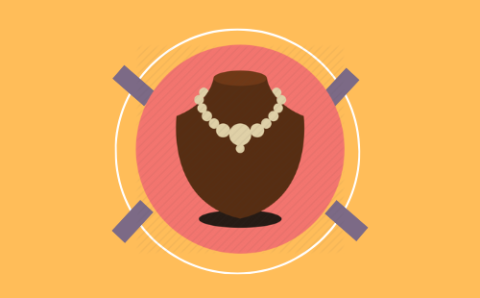Glass Blower Designer
March 24, 2019 2022-09-05 7:50Glass Blower Designer
Glass Blower Designer
Glass Blower Designer
Glass blowers and designers not only require the artistic designs of a craftsperson but also manual skills, a strong professional reputation and a portfolio of successful pieces
A glass blower or designer designs, produces, decorates and finishes pieces of glass for a number of purposes, including:
- architectural glass
- exhibition pieces
- giftware
- mirrors
- stained glass windows
- tableware.
You could work as a scientific glass blower, designing and repairing laboratory glass. You may also be involved in restoring, renovating and repairing original pieces.
You’re likely to work in a small, independent studio, although there are some larger glass manufacturers based in the UK.
Work can be commissioned by individuals, corporate organisations or the public sector. Most blowers or designers will be involved in the entire commission process, from concept to completion.
Responsibilities
As a glass blower or designer, you’ll need to:
- design, produce and finish decorative pieces, including windows, mirrors, lamp bases, ornaments, tableware and sculptures
- work with molten glass (from a furnace) and a blowing iron to form the glass into a rough shape
- create kiln-formed glass – slumping glass into a mould
- recycle scraps (cullet) from larger producers
- solder pieces of coloured, painted or enamelled glass
- use decorative techniques, including engraving, acid-etching, stencilling, sand or grit blasting
- restore, renovate and repair original pieces
- sell wares directly to customers or stockists, from a studio, shop or gallery
- network to establish effective contacts in your specialist market
- attend training courses to keep up to date with technological, scientific and innovative advances in the industry and to learn new techniques
- research and monitor the worldwide glass market to ensure products are current, in demand and reasonably priced
- attend craft fairs and exhibitions
- give live demonstrations of work production before selling
- produce a catalogue or portfolio of designs for publicity purposes.
If you run your own business, additional tasks may involve:
- applying for grants and awards
- working with professional associations and membership bodies for local and national artists
- using photography skills and web design to market products
- entering national and international design competitions
- developing a range of computing skills, including website development and graphics packages along with desktop publishing for producing publicity materials.
Salary
- Salaries for glass blowers can start from £16,000, rising to between £18,000 and £25,000 per annum.
- Experienced designers, or those working for larger companies, can earn more than £35,000.
There is no average salary for self-employed designers as earnings will differ for each commission. Many supplement their income with other work, including teaching or training, freelance writing for trade publications, or other design work.
Income figures are intended as a guide only.
Working hours
There are no set hours for self-employed designers. Evening and weekend work may be necessary to finish a commission on time. If you work for a larger manufacturer, you may be required to work shifts. Trainees, or ‘gatherers’, may be expected to start early in the morning, but finish early afternoon.
What to expect
- Studio designers often work alone, although some form cooperatives with other designers to share studio running costs and equipment. Designers working for larger companies usually work in small teams.
- Much of the work is carried out in a studio, operating machinery and using tools. Protective goggles and clothing are worn in most studios.
- Running your own business can be stressful with little job security. On the plus side, you can manage your own time and exercise your creativity freely. Glass blowers or designers working for larger companies may enjoy better job security and more opportunities for progression, but less artistic freedom.
- Due to the relatively small number of glass studios across the UK, you may need to travel some distance to work. Some designers work in more than one location and some work from home. Ultimately, some designers may set up their own hot shop.
Qualifications
Although this area of work is open to all graduates, a degree, HND or foundation degree covering the following subjects may increase your chances:
- architectural glass, stained glass, restoration and conservation
- art, fine art or decorative arts
- ceramic and applied arts
- contemporary crafts
- design and applied arts with glass
- glass or glass with ceramics
- 3D design.
You’ll need to provide a portfolio of your work for entry on to relevant degree or postgraduate courses, as well as to show to potential employers.
Entry without a degree is possible, and you can train on the job by working in a glass factory. The IQ Level 2 NVQ Certificate in Glass Processing (QCF) and the Level 3 NVQ Diploma in Glass Processing (QCF) are relevant qualifications if you want to pursue a career in glassblowing, scientific glassblowing or glass decorating.
Opportunities also exist to take glass industry apprenticeships. Apprenticeships vary depending on the sector but include roles as a glass maker, craft-class worker and stain glass worker.
Introductory and taster courses in glass design and glass making are run across the UK. To find details of courses near you, see your local adult education centre.
Some independent studios also offer beginners’ workshops in the evenings or run short courses during weekends or holidays.
Some universities provide taster and short courses in glass making. Adult taster sessions, classes and courses in glass, as well as a BA (Hons) Glass and Ceramics, and opportunities for postgraduate study and research, are offered by the National Glass Centre, part of The University of Sunderland.
Although postgraduate study is not essential, several universities offer Masters courses in glass, providing the opportunity to develop skills further. Search postgraduate courses in glass.
Skills
You’ll need to show:
- an eye for colour and detail
- architectural awareness
- attention to detail, accuracy and patience
- communication and presentation skills
- craftsmanship
- creative design
- good hand-eye coordination
- fitness and stamina
- planning and problem-solving skills
- teamworking ability
- technical ability
- time management skills.
If you’re self-employed, you’ll also need good general business and research skills, self-motivation and the ability to market yourself and your products.
Foreign language skills may improve your chances of branching out into overseas markets.
Work experience
Take the opportunity during your degree to showcase your work at public exhibitions and take part in competitions and degree shows. Make the most of visits, exchanges and work placements both in the UK and abroad to build a network of contacts. If possible, take on commissions to further enhance your CV.
Although not all jobs require formal educational qualifications, you’ll need a portfolio of work to present to potential employers and clients. Subjects or experience in areas such as art and design, technology and the sciences, coupled with a passion for the glass sector will give you an advantage.
To help raise your profile, get your work known and build a professional reputation, go to craft fairs, follow the arts trails and make contact with other designers.
Find out more about the different kinds of work experience and internships that are available.
Employers
Many glass blowers or designers work for themselves as self-employed artists, designers or makers. If you specialise in giftware, jewellery or one-off pieces of artwork, you can sell your products through craft fairs, exhibitions, galleries or arts centre gift shops. See more information on self-employment.
While department stores usually work with larger producers, some may sell exclusive ranges of independent designers. Online shopping has also increased potential markets for glass designers – most designers will have their own website with an online gallery and often an online shop.
Other glass blowers or designers work for studios where they may specialise in areas such as stained glass, glass painting or decorative surface treatments, e.g. kiln forming or engraving.
A small number of UK crystal manufacturers employ skilled glass blowers, designers and decorators. These include:
- Caithness Glass – a division of Dartington Crystal
- Dartington Crystal – the only remaining major crystal factory in the UK
- House of Waterford Crystal – located in Ireland.
Other larger employers include department stores and interior design houses, which have their own design teams.
Stained glass designers may be commissioned by:
- banks
- churches
- hotels
- mosques
- national heritage projects
- private clients
- pubs
- public buildings
- shopping centres.
Scientific glassblowers tend to work either in universities or companies that design, manufacture and repair scientific and laboratory glassware.
Look for job vacancies at:
- a-n: The Artists Information Company – vacancy information available to members.
- ArtsJobs
- Contemporary Glass Society (CGS)
- Crafts Council – details of opportunities to exhibit.
- Glass Global – mostly ‘flat glass’ opportunities.
- Glass Jobs Online – mostly ‘flat glass’ opportunities.
University departments offering degrees in glass, ceramics or applied arts may advertise vacancies.
Some opportunities may be listed in the trade press, such as the Crafts Council’s Crafts Magazine.
Professional development
Continuing professional development (CPD) is important, whether you are a self-employed glass blower or designer or you work for a larger company.
If you’re employed by a company, they may provide in-house training. This usually involves being taught and supervised by a more experienced craftsperson.
Attend trade fairs and exhibitions in order to build up a network of contacts and to find out about new methods and ideas.
To keep up to date with developments in the profession and to find details of forthcoming fairs and exhibitions read the trade press, such as Crafts Magazine.
Further study offers the opportunity to experiment, diversify or produce better work within a specialism. Courses are offered at postgraduate level in areas such as:
- architectural glass
- glass and ceramics
- hot glass
- kiln glass
- stained glass conservation.
Research in glass is promoted and facilitated by the National Glass Centre, affiliated to The University of Sunderland.
If you’re a self-employed glass blower or designer, you can take courses to develop your business-related skills in areas such as:
- financial management, marketing, accounting and legal business matters
- health and safety
- information technology, web design and software packages
- photography (to assist with production of catalogues and publicity)
- marketing and networking.
Career prospects
If you’re employed by a larger organisation, you may have the opportunity to move into managerial or supervisory roles. Such progression involves increased responsibility and more emphasis on non-creative skills, including people management, budgetary control and planning.
If you’re self-employed, career development comes from increased ability and an expanding portfolio. A well-established reputation will bring more challenging commissions and clients. You could also get involved in teaching glass blowing and designing.
There are some glass blowing or designing competitions with financial rewards. See Crafts Council to find out more.
Working abroad may be of interest to you. In recent years, the increase in luxury resorts and hotels has brought new opportunities for UK glass designers. There is also a demand for decorated and structural glass in architecture, interior design and furniture.
It’s likely that, especially in the early days of your career, you may need to supplement your income with other work. Opportunities arise in education, conservation and arts management. This might include glass restoration, stained glass making, teaching or lecturing at local schools and colleges, as well as running evening courses and workshops.
As with any creative career, it’s useful to keep in touch with industry peers and industry developments by joining relevant networks and associations. A biennial opportunity to network with international participants and to exhibit and sell to international audiences is provided by the International Festival of Glass.
Find out how Jahday became a glass-maker at BBC Bitesize.
June 2022







